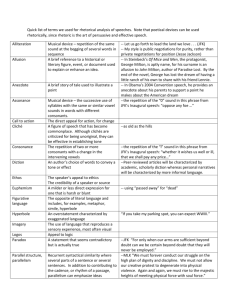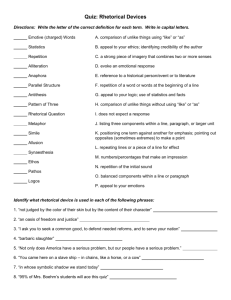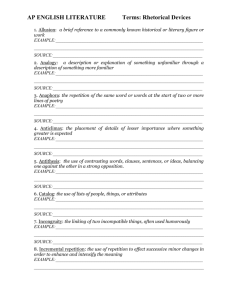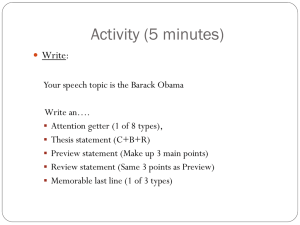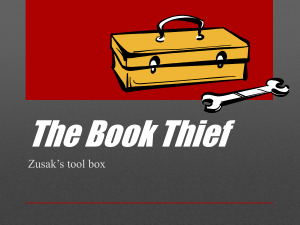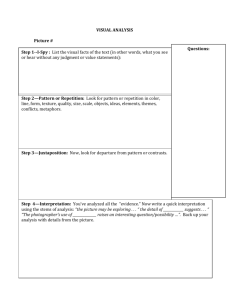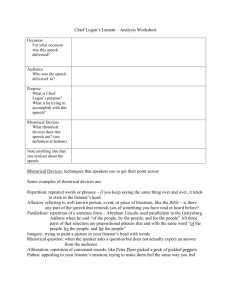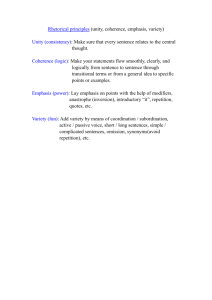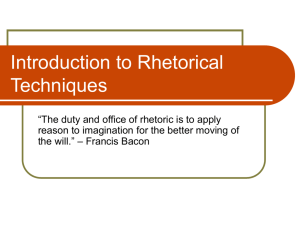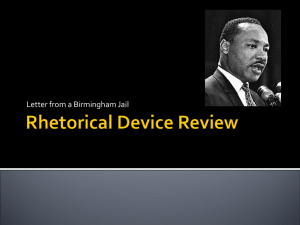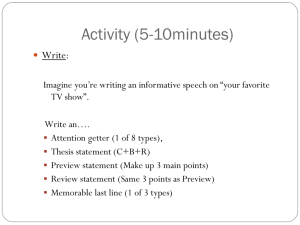Rhetorical Devices: Definitions and Examples
advertisement
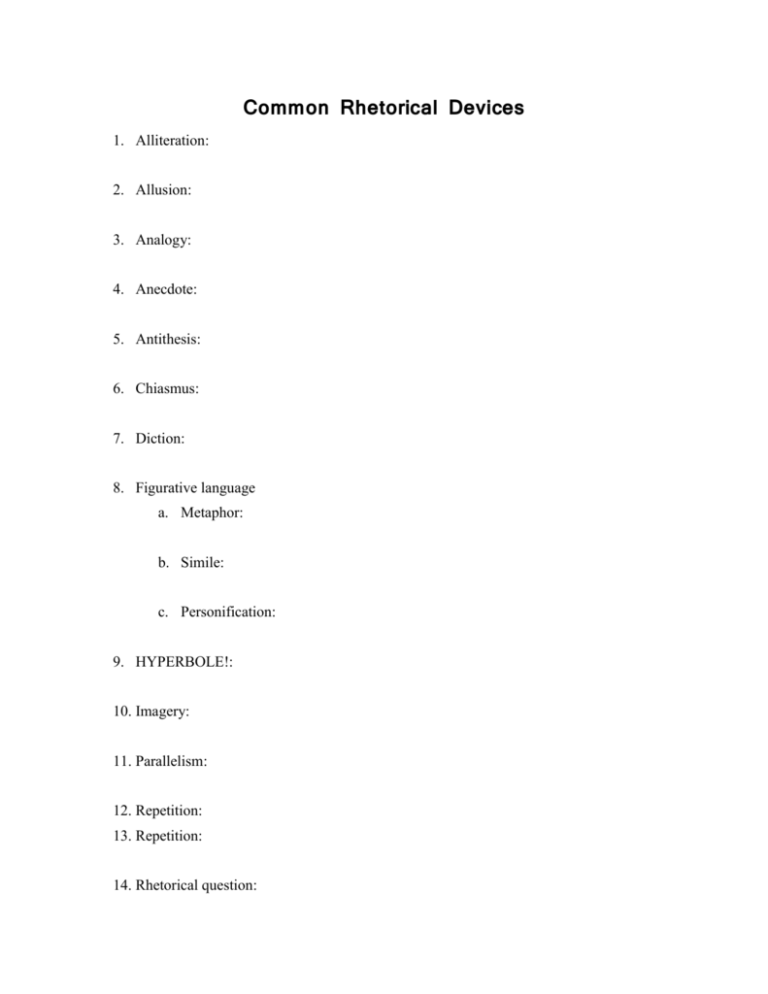
Common Rhetorical Devices 1. Alliteration: 2. Allusion: 3. Analogy: 4. Anecdote: 5. Antithesis: 6. Chiasmus: 7. Diction: 8. Figurative language a. Metaphor: b. Simile: c. Personification: 9. HYPERBOLE!: 10. Imagery: 11. Parallelism: 12. Repetition: 13. Repetition: 14. Rhetorical question: Rhetorical Devices: Defined! Alliteration: The repetition of beginning sounds in groups of words. E.g. Pappy Palmer’s palate preferred peaches to pears. Allusion: A casual or implied reference to something from history, a literary work, religion, myth etc. e.g. Brooklyn Technical High School is like the Garden of Eden. (Maybe not). Analogy: A comparison of a thing to another different thing in order to clarify an idea or make it simpler to understand. E.g. Dr. House is like a detective; he has to find clues to cure the disease. Anecdote: A short, personal story. E.g. Two weeks ago, I almost died from a falling piece of ice. Antithesis: Antithesis, literal meaning opposite, is a device in which two opposite ideas are put together in a sentence to achieve a contrasting effect. E.g. Patience is bitter, but it bears sweet fruit. Chiasmus: Figure of speech by which the order of terms in the first of the parallel clauses is reversed in the second. e.g. Fair is foul, and foul is fair. OR, Never let a fool kiss you, or a kiss fool you. Diction: An author’s choice of words to convey tone or effect. Figurative Language: Metaphor: makes an implicit, implied or hidden comparison between two things or objects that are poles apart from each other but have some characteristics common between them. Simile: A simile is a figure of speech that makes a comparison showing similarities between two different things using “like” or “as.” Personification: a thing, an idea, or an animal is given human attributes. Hyperbole: Derived from a Greek word meaning “over-casting,” involves an exaggeration of ideas for the sake of emphasis. E.g. This list takes FOREVER to read. OR, I’m dying of embarrassment! Imagery: The formation of mental images or likenesses, appealing to all of our senses, often through the use of figures of speech. E.g. It was dark and dim in the cave, and the gossamer felt like wet silk on the walls. Parallelism: The deliberate repetition of the same or similar grammatical structure, often used for effect in emotional of dramatic passages. E.g. Like Father, Like Son. OR, I came, I saw, I conquered! Repetition: The deliberate reuse of the same word, words, or events to create an effect. Repetition: The deliberate reuse of the same word, words, or events to create an effect. Rhetorical Question: A question asked just for the effect or to lay emphasis on some point discussed when no real answer is expected. E.g. Why am I making you study this sheet of definitions?
